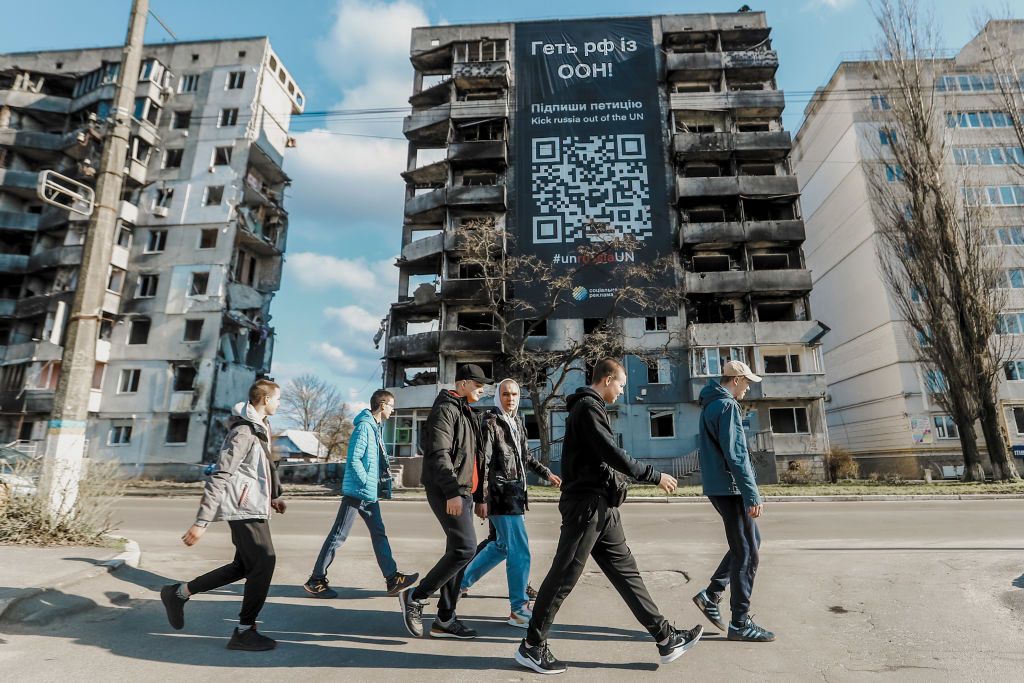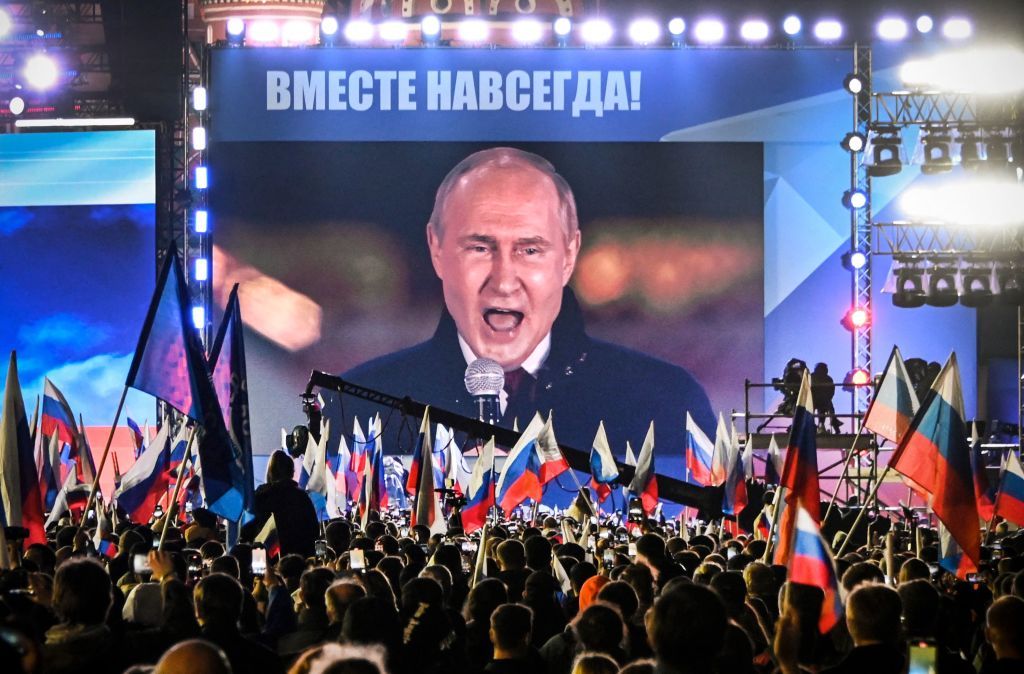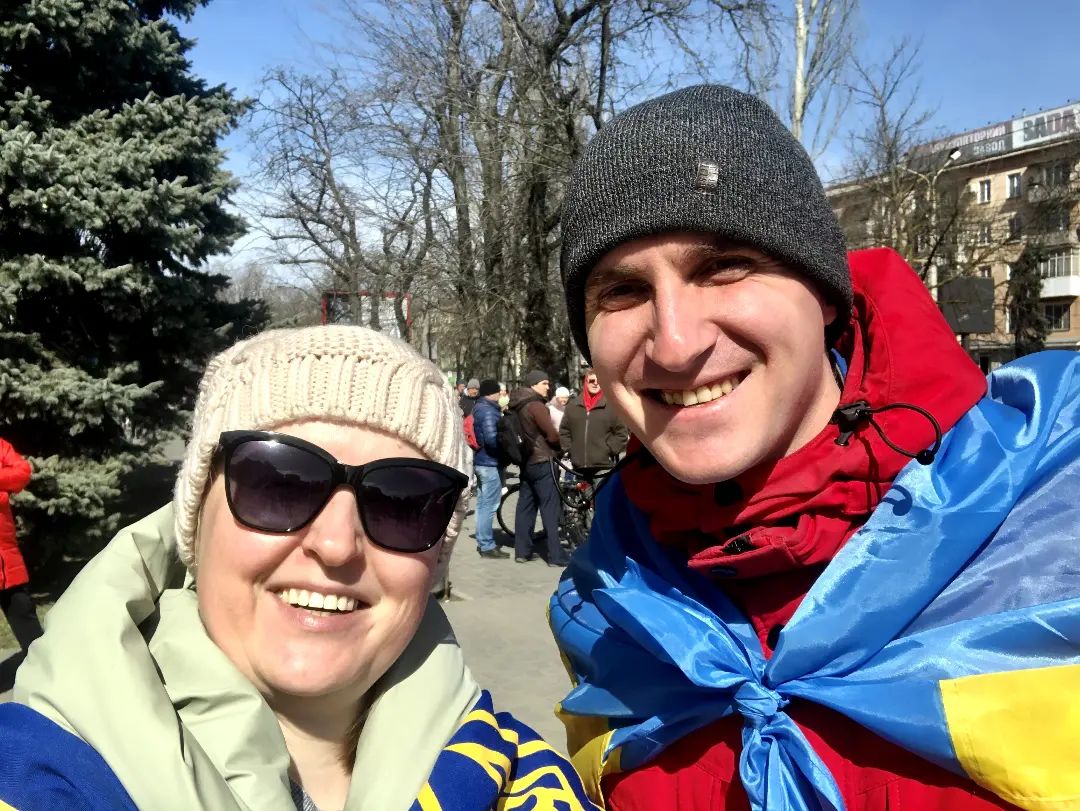Anna Myroniuk: Russia’s war has cost me friends, colleagues, loved ones

Editor’s Note: The opinions expressed in the op-ed section are those of the authors and do not purport to reflect the views of the Kyiv Independent.
I am laying flowers on the coffin of my former colleague, journalist-turned-soldier Oleksandr Bondarenko, who was killed on the front line near Kreminna in Luhansk Oblast a few days ago.
We worked together briefly in 2014 at the news bulletin of a popular Ukrainian TV channel. A junior reporter at the time, I always regarded him, experienced and professional, with admiration.
Originally from Luhansk, which Russia illegally occupied in 2014, Bondarenko volunteered to join Ukraine’s military when Russia unleashed its all-out war in February last year.
So did my former partner Oleksandr Makhov, also a journalist and Luhansk native, who joined the army and was killed on May 4, 2022, near Izium in Kharkiv Oblast. I will lay flowers on his grave in a few days to mark the first anniversary of his death.
I had known Makhov for almost 10 years, for two of which we dated. He, loud and bright, meant a lot to me.
Russia keeps taking away my loved ones, friends, and colleagues. I have lost seven of them to Russia’s war, and I can’t help but to ask myself: how many more, and who’s next?
As the EU member states struggle to negotiate joint ammunition procurement for Ukraine, which is preparing to launch its long-awaited counteroffensive, I am thinking about the human toll it will have.
The equation is as follows: The more ammunition Ukraine has, the more soldiers’ lives will be saved.
Those attacking tend to experience much heavier losses than those defending, and require at least three times as many troops as the opponent and much more ammunition. Delays in its supply are measured in human lives.
I want top-ranking decision makers to remember that, as they fail to achieve unanimity regarding ammunition procurement and arms supplies, Ukraine loses its people – and I lose my friends and colleagues.
Czech President Petr Pavel recently said that Ukraine will only have one chance for a major counteroffensive, as it will be difficult to “maintain the current level of assistance.” If this is true, European politicians should commit to speeding up their negotiations.
If you are a world leader who is having trouble understanding why to rush, think about the mass graves unveiled after the liberation of Bucha, Borodianka, and Izium. Torture, rape, and killings – this is what Ukrainians living in Russian-occupied territories face.
Saving their lives will inevitably cost Ukraine the lives of its soldiers. The more ammunition and arms Ukraine has, the more soldiers will return to their families alive.
I always remember the first friend, a soldier, that I lost.
It was the winter of 2014-2015 – almost a year into the initial phase of Russia’s invasion. By then, Russia had already occupied Crimea and the eastern cities of Donetsk and Luhansk, and heavy fighting was raging in Donbas.
I, then a 20-year-old reporter, was on the front line in search of adventure.
My friend Oleksandr, a former policeman, was primarily stationed there to counter the advance of Russian troops, but also to prevent journalists like me from ending up in situations that would prove fatal.
I would arrive at his checkpoint – the last one before the heavily targeted segment of the highway leading to Russian-occupied Luhansk – and ask him to let me go forward to report on the fighting.
Whenever he was on shift, he would always refuse. “Coffee first,” he would say. The same rule applied to the other reporters. I know he cared about the journalists, and didn’t want us to be put at too much risk.
Russian troops then advanced, moving the front line even closer to Oleksandr’s position. I learned that his checkpoint came under heavy fire and he was killed, just days before his planned rotation.
I called him in disbelief. His phone was out of service. “A usual thing on the front line,” I thought.
Later the automated text message came: “I am available again! Call me, please.” Mutual friends told me that his phone had been given to his wife. I kept this message for many years.
I have since lost many soldier friends on the front line.
Captain Volodymyr Kiyan hit a mine in Shchastia, Luhansk Oblast, on Sept. 3, 2015. Senior Sergeant Dmytro Hodzenko fell due to fatal shelling in Zaitseve, Donetsk Oblast, on March 31, 2016 – one day before his demobilization. Captain Denys Khilchenko came under artillery fire in Marinka, Donetsk Oblast, on Aug. 4, 2022.
After Russia’s full-scale invasion, I lost colleagues, too.
Yevhen Sakun, a cameraman I used to work with, was killed on assignment next to the Kyiv TV tower on March 1 of last year, in the first days of Russia’s full-scale invasion. Then, Oleksandr Makhov, my former colleague and boyfriend. Days ago, former coworker Oleksandr Bondarenko.
Neither Makhov nor Bondarenko were professional soldiers. They were journalists who took up arms to help defend Ukraine.
Makhov never wanted to pursue a military career. He loved hiking, snowboarding, and cinematography. He dreamed of writing a book and visiting Portugal. If not for Russia’s war, I am sure he would have achieved his goals.
I know it's impossible to bring them back, but it is possible to save the lives of people like them, and to allow them to see their dreams through.
For that, Ukraine needs arms and ammunition.













